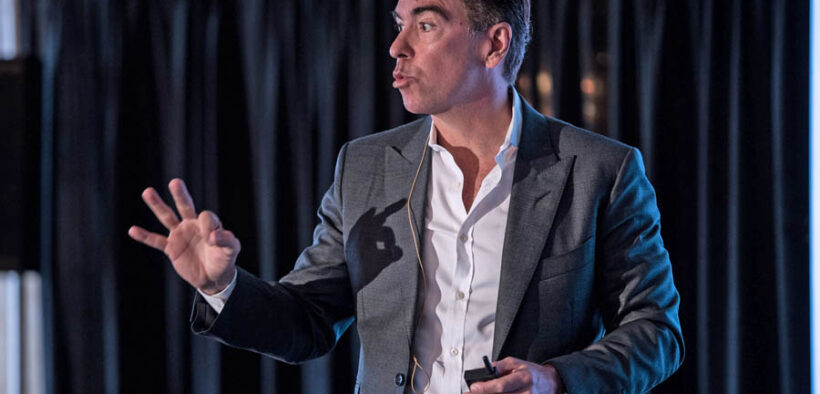Bravo urges future investors: ‘Do your own thing’

Orlando Bravo, founder and managing partner of Thoma Bravo, traced his path from a 15-year-old tennis player in Mayagüez to leading one of the world’s largest private equity firms in a recent episode of “View From the Top: The Podcast,” produced by Stanford Graduate School of Business.
In the interview, Bravo discussed the decisions, setbacks and turning points that shaped his career and informed his approach to investing.
He recalled that moving to Florida to pursue tennis felt both daunting and promising.
“I thought I was being handed an opportunity of a lifetime,” he said, noting that coming from a small town on Puerto Rico’s west coast meant long drives just to access training.
At Nick Bollettieri’s Tennis Academy, he realized “I wasn’t that good. But I did private equity, so that’s okay, I’ll take it.”
Bravo said his early years on Wall Street revealed “the American opportunity,” where investors could “give you money, and with that you can buy a multinational corporation.” That exposure sparked his interest in private equity.
The path was not smooth. He did not receive a return offer from his first private-equity internship and responded by “sending out 500 random resumes” and cold-calling firms.
“You don’t need many offers,” he said. “You just need one. And it has to be the right one.”
That offer came when industry pioneer Carl Thoma opened a San Francisco office, though Bravo said he nearly lost the role after prematurely asking for carried interest.
“You got to earn your way through it,” he recalled being told.
Early deals were unsuccessful. During the dot-com boom, Bravo completed three IT-related transactions; after the crash, “two out of the three went to zero” and one returned only half the investment.
“It was an absolute disaster,” he said. Thoma warned he was close to being fired but chose to give him “one more chance.”
That opening allowed Bravo to pitch software buyouts, a strategy that was unusual at the time. The model focused on companies built on recurring revenue that could improve performance through operational changes. The approach led to a series of acquisitions that helped define the firm’s direction.
Today, Thoma Bravo manages close to $200 billion in assets, but Bravo said the fundamentals remain the same.
“We still have to get the money, win the deal and improve the deal,” he said. The distinction, he added, is scale: “Now we can buy the No. 1 software company in so many different areas.”
Bravo said his engagement in Puerto Rico accelerated after Hurricane María, when he flew to the island within a day because he could not reach family.
“If we don’t do anything about it, nobody’s going to do anything about it,” he said.
That response evolved into broader philanthropic work and the Bravo Family Foundation, which has supported more than 100 local startups through mentorship and seed funding.
Bravo offered two lessons to emerging investors: “Do your thing. Do your own thing,” he said, and expect a nonlinear journey. “But if you [stick] to it, you will build things that are much bigger and better than what anybody else had done before.”












